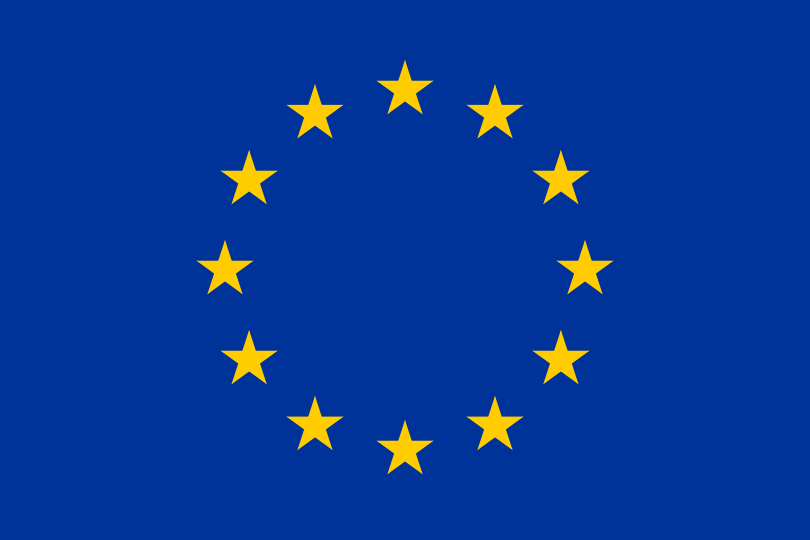The European Union is a collection of countries on the European continent which all pay membership fees, vote on laws that states have to follow (the people who decide these laws are known as Members of the European Parliament that come from the member states), have a freedom of trade, no tariff fees, and a freedom of movement of people.
The member states of the European Union as of the 28th June 2016, are as follows:
- Austria
- Belgium
- Bulgaria
- Croatia
- Cyprus
- Czech Republic
- Denmark
- Estonia
- Finland
- France
- Germany
- Greece
- Hungary
- Ireland
- Italy
- Latvia
- Lithuania
- Luxembourg
- Malta
- Netherlands
- Poland
- Portugal
- Romania
- Slovakia
- Slovenia
- Spain
- Sweden
- United Kingdom (A referendum in June 2016 found that 51.89% of voters wanted to leave the European Union)
 |
| Flag of the European Union. Courtesy of: Verdy P License: Public Domain |
European Economic Area (EEA)
There are 3 other European nations that aren't in the European Union but the European Economic Area (EEA) and these countries are:
- Norway
- Liechtenstein
- Iceland
Switzerland & Schengen
Switzerland is not a member of the European Union, or European Economic Area; so pan-European law doesn't apply in Switzerland; but Switzerland is a member of the Schengen area. The Schengen area does not make laws, impose tariffs, or anything for that matter; it is an agreement between 26 states that make international border pretty much void. In the words of YouTube user CGP Grey, "You could walk from Lisbon to Tallinn without identification or the need to answer the question, 'Business or Pleasure?'."
 |
| The border between the Netherlands and Belgium, no customs officers or passport checks. Courtesy of: Jérôme License: CC BY-SA 3.0 |
There are some EU states that don't conform to this rule because they want to 'opt-out' and these EU states are:
- United Kingdom
- Ireland
- Cyprus
- Croatia
- Romania
- Bulgaria
Eurozone
The European continent has its own currency, affectionately named the "Euro". You may have heard about the Euro currency from Greece and the financial crisis in the country, the Euro was launched in 1999 and many states removed their national currencies from circulation in favour of the Euro. There are some European Union member states that do not use the Euro currency however the Euro is expected to adopted by all states by the year 2020; these rebellious countries are:
- Bulgaria (Lev)
- Croatia (Kuna)
- Czech Republic (Koruna)
- Denmark (Krone)
- Hungary (Forint)
- Poland (Złoty)
- Romania (Leu)
- Sweden (Krona)
- United Kingdom (Pound)
 |
| The Euro in Coins & Banknotes. Courtesy of: Valentina Gatta License: CC BY-SA 4.0 Modified: No |
This is good if you travel within the Eurozone as there's no need to constantly exchange your currency, the costs of living will vary by country and in Spain a coffee may cost you €1.50 whereas in France, the same coffee will cost you €1.95.
I'm merely qualified to talk about politics or indeed European politics, however the continent with its politics, economics, diplomacy, and treaties are an enigma and if you want to know more, you should go to your library, or educational facility and see if you can find more information. This is not a sandboarding related post, however; if you want to travel to Monte Kaolino (Germany), the tallest sand dune in Europe (Dune of Pilat in France), Holywell Bay (the United Kingdom), Maspalomas (which is in the Canary Islands, which are a part of Spain.), or the dunes of the Curonian Spit (the majority of the spit is administered by Lithuania); you'll need to know about Europe.
Before I go
As the UK has voted to leave this union, the future is uncertain for Europe and the UK itself so don't take this for gospel but at the time of publication, the information is correct as of 28th June 2016 and politics may change everything. The European Union member states give citizens access to free health care in the other European countries, and a common driving license is valid throughout Europe as well; luckily, I passed my driving test a month before we decided to leave Europe, but if I'm honest, I don't think I'll be able to exercise that liberty very soon.

No comments:
Post a Comment